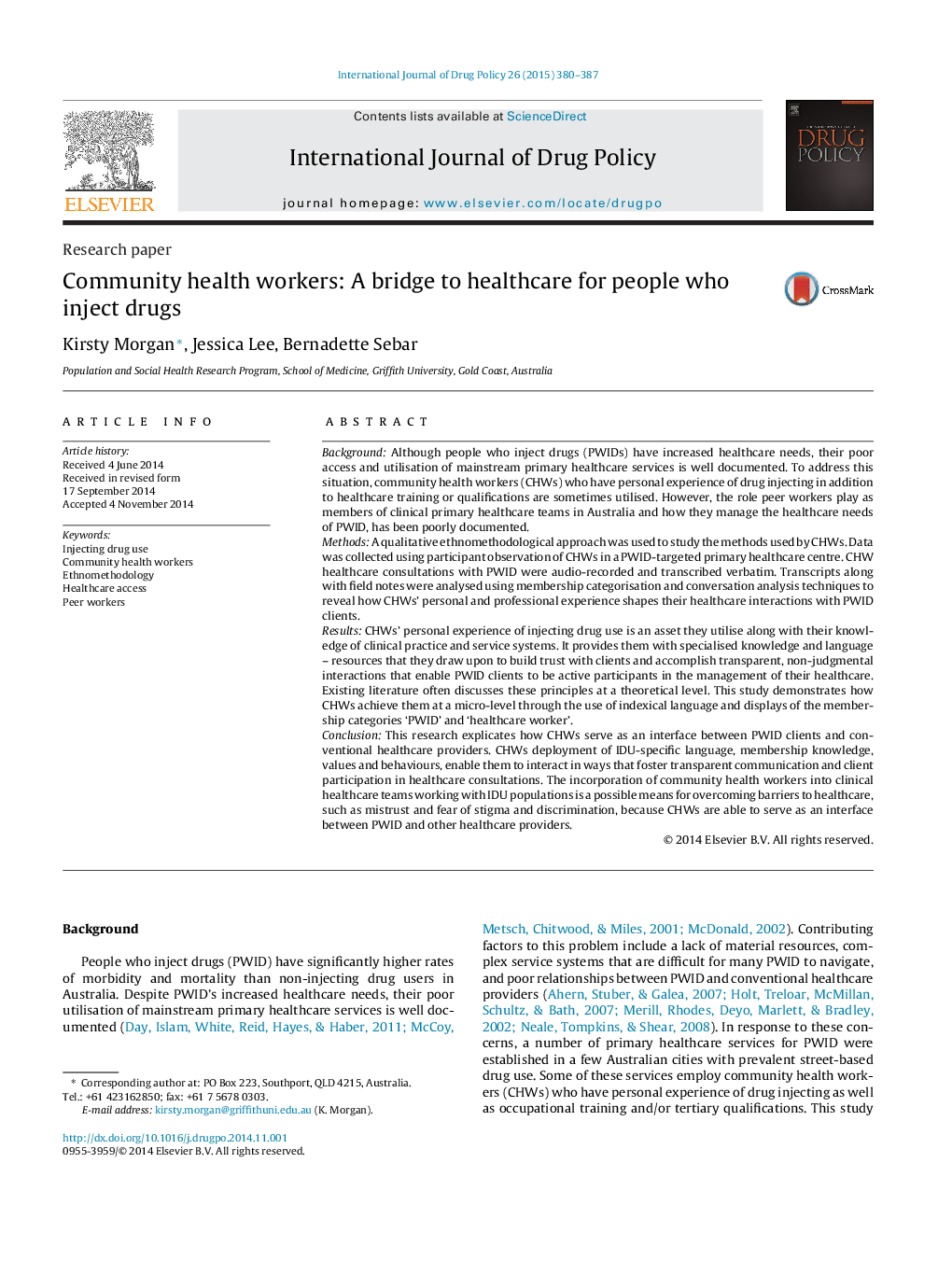| کد مقاله | کد نشریه | سال انتشار | مقاله انگلیسی | نسخه تمام متن |
|---|---|---|---|---|
| 1075148 | 1486287 | 2015 | 8 صفحه PDF | دانلود رایگان |
• We explore how CHWs personal experience of drug injecting influences service delivery.
• CHWs build trust with PWID clients using their familiarity of language that is specific to PWID.
• CHWs enable PWID to be actively involved in decision-making about their health.
• CHWs’ skills enable them to serve as intermediaries between PWID and other practitioners.
BackgroundAlthough people who inject drugs (PWIDs) have increased healthcare needs, their poor access and utilisation of mainstream primary healthcare services is well documented. To address this situation, community health workers (CHWs) who have personal experience of drug injecting in addition to healthcare training or qualifications are sometimes utilised. However, the role peer workers play as members of clinical primary healthcare teams in Australia and how they manage the healthcare needs of PWID, has been poorly documented.MethodsA qualitative ethnomethodological approach was used to study the methods used by CHWs. Data was collected using participant observation of CHWs in a PWID-targeted primary healthcare centre. CHW healthcare consultations with PWID were audio-recorded and transcribed verbatim. Transcripts along with field notes were analysed using membership categorisation and conversation analysis techniques to reveal how CHWs’ personal and professional experience shapes their healthcare interactions with PWID clients.ResultsCHWs’ personal experience of injecting drug use is an asset they utilise along with their knowledge of clinical practice and service systems. It provides them with specialised knowledge and language – resources that they draw upon to build trust with clients and accomplish transparent, non-judgmental interactions that enable PWID clients to be active participants in the management of their healthcare. Existing literature often discusses these principles at a theoretical level. This study demonstrates how CHWs achieve them at a micro-level through the use of indexical language and displays of the membership categories ‘PWID’ and ‘healthcare worker’.ConclusionThis research explicates how CHWs serve as an interface between PWID clients and conventional healthcare providers. CHWs deployment of IDU-specific language, membership knowledge, values and behaviours, enable them to interact in ways that foster transparent communication and client participation in healthcare consultations. The incorporation of community health workers into clinical healthcare teams working with IDU populations is a possible means for overcoming barriers to healthcare, such as mistrust and fear of stigma and discrimination, because CHWs are able to serve as an interface between PWID and other healthcare providers.
Journal: International Journal of Drug Policy - Volume 26, Issue 4, April 2015, Pages 380–387
